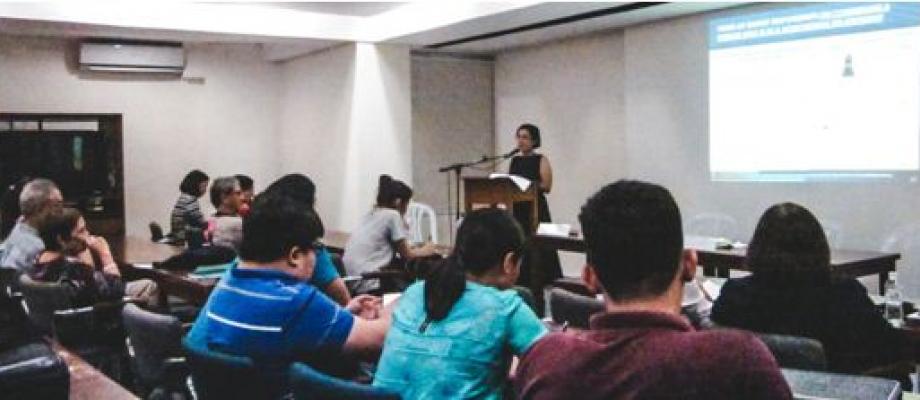The fulfillment of the IPC’s goals is anchored on research, the major focus of its activities. From this knowledge base emanate two other principal areas of competence-capability building and knowledge dissemination. With the interrelated pursuit of these activities within multidisciplinary perspectives, the IPC is able to meet academic and development needs.

IPC research follows two tracks. The first focuses on its regular programs, namely, cultural heritage documentation; cities, governance and sustainability; assessments of development programs; children and youth; and technology and health. Over the years, the IPC has produced research reports and papers analyzing the situation of groups and communities; helped build the capacity of government and civil society partners for understanding and serving their partner or clientele population; and played key roles in networks active in advocacy.
The second centers around issues or themes aimed at offering solutions to persistent problems while building theory on the dynamics of Philippine society and culture. They have been grouped into five substantial clusters:
1. Social justice, poverty, and resilience;
2. Civil society, social change, and cultural and faith-based values;
3. Asset building and social capital formation in community-based health, education, shelter, and natural resource management;
4. Cultures of work, conflict, and peace;
5. The impact of globalization; and
6. Preservation and promotion of cultural heritage.
The IPC’s capability-building activities take place in two related arenas:
1. Strengthening participation in the teaching functions of the University through the Graduate Degree Program for Asian Development Practitioners; and
2. Broadening assistance to development organizations through short training courses and other training activities in the area of the IPC’s competence.
Begun in 1986, the Graduate Degree Program is a joint undertaking with the Department of Sociology and Anthropology of the Ateneo de Manila University. It has trained development planners and workers from Indonesia, the Philippines, Thailand, and Vietnam, with the aim of transferring skills in analyzing and interpreting contemporary social issues in developing societies, particularly in the Asian Region. The short training courses focus on social science research methods for development practitioners (or research for development courses); gender analysis and planning (gender and development or GAD courses); and environmental economics and management.


The results of IPC research and lessons from capability-building activities are disseminated through the publication of various materials, including the IPC Papers, IPC Monograph, IPC Research Reports, and IPC Discussion Papers. Complementing this dissemination medium are the IPC website, IPC Resource Center, and the holding of conferences, dialogue, and fora.
